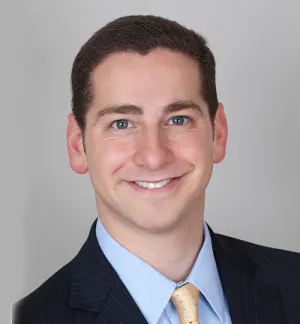Leaders seeking to extend their hold on power are generating controversy and conflict around the globe. Several foreign presidents have recently sought to remain in office beyond formal limits. Washington has condemned these term extensions as undemocratic and corrupt. But the passing of Associate Justice Antonin Scalia in February after serving for nearly three decades on the U.S. Supreme Court has raised the issue of tenure length in the United States as well. The absence of term limits for over 1,000 members of all three of the U.S. government's branches as well as for hundreds of officials at the state and local levels underscores the degree to which critical offices in the United States can often be held for life.
Recent foreign efforts to cling to power have faced mixed results, with successful attempts in Belarus, Djibouti, Tajikistan, and Uganda, and unsuccessful ones in Bolivia and Burkina Faso. Two countries, coincidentally both in the Great Lakes region of Africa, currently illustrate different approaches to—and consequences of—bucking previously established presidential term limits. In December, Rwanda held a referendum, which the public reportedly supported by 98 percent, to amend its constitution to allow President Paul Kagame to run for re-election after his second term concludes next year. No civil unrest followed. In the adjacent country of Burundi, despite a constitution that stipulates a two-term limit, President Pierre Nkurunziza ran for and won a third term last July, triggering violent protests that continue to this day and that so far have left at least 500 people dead and 270,000 as refugees.
The Barack Obama administration has criticized both heads of state. The State Department announced that it is "deeply disappointed" that President Kagame is seeking a third term, expressing the belief that "constitutional transitions of power are essential for strong democracies and that efforts by incumbents to change rules to stay in power weaken democratic institutions." Of Rwanda's neighbor to the south, President Obama himself stated: "When a leader tries to change the rules in the middle of the game just to stay in office, it risks instability and strife, as we’ve seen in Burundi." In a speech before representatives of the African Union last July, President Obama declared that "your country is better off if you have new blood and new ideas."
While the Obama administration is correct to express concern over the corrupting influence and stagnating impact of long-held power, the United States should also examine its own policies on official tenures. Some U.S. leaders have recently tried—sometimes successfully—to change the rules in the middle of the game, exactly what the Obama administration denounced in Rwanda and Burundi. For example, in 2008, the majority of New York City Council members voted to extend term limits for all elected city officials, including themselves. The new law allowed, among others, incumbent mayor Michael Bloomberg to successfully seek re-election. Quite the opposite of Rwanda's popularly supported constitutional amendment, the New York City Council’s revision defied not just one but two referendums. The federal government did not criticize the New York City Council or Mayor Bloomberg, nor has President Obama explained why, in the case of Rwanda, a democratic process of constitutional amendment supported by almost the entire public, assuming it was free and fair, is condemnable.
And some U.S. officials serve for life, a phenomenon President Obama denounced for African officials. The passing of Justice Scalia on February 13 has rekindled a debate about whether lifetime appointments for federal judgeships—of which there are currently 860—are wise. America's Founding Fathers devised these appointments nearly 230 years ago, when life expectancy was significantly shorter. Moreover, long, not life, tenure is essential for judicial independence, and lifetime appointments may increase politicking by giving justices some control over the timing and political persuasion of a successor. Lifetime judicial appointments can also lead to mental debilitation, unaccountability, and, as is currently the case with the vacancy left by Justice Scalia, high-stakes confirmation battles. For all of these reasons, lifetime appointments are unpopular in peer countries. According to two legal scholars, the United States is alone among major democratic nations in providing life tenure for the members of its highest court. Rather, these other countries—including Australia, Canada, England, France, Germany, Italy, Portugal, Russia, South Africa, and Spain—impose term limits or mandatory retirement ages.
Other U.S. officials can potentially serve for life through unlimited re-election. These officials include the vice president, the 535 members of the U.S. Congress, the governors of 13 states (Connecticut, Idaho, Illinois, Iowa, Massachusetts, Minnesota, New York, North Dakota, Texas, Washington, and Wisconsin), the legislators of 35 states, and approximately 90 percent of mayors throughout the country (including the one for the nation's capital). The absence of term limits in these cases has led to some extremely lengthy tenures. For example, seven U.S. Congresspeople—Robert Byrd, John Conyers, John Dingell, Carl Hayden, Daniel Inouye, Carl Vinson, and Jamie Whitten—each served (or, in the case of Congressman Conyers, continue to serve) for over half a century, two of whom (Senators Byrd and Inouye) were stopped only by death.
Of course, the role and responsibilities of presidents are different from those of other members of state and federal executive, legislative, and judicial branches. The U.S. government itself recognizes that distinction. George Washington established a "two-term tradition" for U.S. presidents. And, after Franklin Delano Roosevelt's unprecedented four terms in office, the twenty-second amendment to the U.S. Constitution, ratified in 1951, officially cemented that tenure limit. But many of the same arguments the Obama administration has made about foreign leaders extending their own tenures apply domestically as well. So far, the Obama administration has not articulated why, despite the president's concern over the need for "new blood and new ideas" abroad, lifetime appointments and unlimited re-election are acceptable at home.
While the U.S. government critiques the tenures of foreign officials, it should consider whether the principles it espouses are reflected in our country's own procedures. Where inconsistent, the United States should either reconcile what it practices and preaches or refrain from hypocrisy.
Zachary D. Kaufman was a 2014–2015 U.S. Supreme Court Fellow and a 2015–2016 International Security Program Fellow at the Harvard Kennedy School's Belfer Center for Science and International Affairs as well as a Visiting Fellow at Yale Law School. Starting on July 1, he will be a Senior Fellow at the Harvard Kennedy School's Carr Center for Human Rights Policy. He is the author of United States Law and Policy on Transitional Justice: Principles, Politics, and Pragmatics (Oxford University Press, 2016).
Statements and views expressed in this commentary are solely those of the author and do not imply endorsement by Harvard University, the Harvard Kennedy School, or the Belfer Center for Science and International Affairs.
Kaufman, Zachary D. "Term Limits at Home and Abroad" Belfer Center for Science and International Affairs, Harvard Kennedy School, June 30, 2016.





